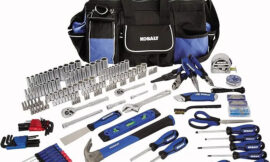The growing demand for lithium-ion batteries in various industries, from consumer electronics to electric vehicles, has led to an increase in their recycling. However, recycling these batteries presents unique safety challenges due to the risks of chemical exposure, fires, and explosions. NEBOSH (National Examination Board in Occupational Safety and Health) provides critical guidelines for managing these hazards effectively. Professionals undertaking a NEBOSH Course can gain the knowledge and skills necessary to ensure the safe operation of recycling facilities and prevent workplace accidents.
A NEBOSH Course offers specialized training in managing risks associated with hazardous materials, including lithium-ion batteries. This type of course is essential for those working in recycling facilities where such materials are processed. Understanding how to handle these batteries safely, and having the right safety measures in place, can significantly reduce the risk of incidents. It is essential to understand the environmental and health risks involved and ensure that safety protocols align with NEBOSH’s guidelines.
Understanding Lithium-Ion Battery Hazards
Key Risks in Battery Recycling
Lithium-ion batteries, when mishandled, can be extremely hazardous. The primary risks include chemical spills, fire hazards, and electrical shocks. When these batteries are improperly disposed of or recycled, the volatile materials inside can lead to serious accidents. A NEBOSH course helps professionals understand these risks and implement safe handling and disposal practices to minimize potential hazards.
Types of Hazards in Recycling Facilities
- Chemical Exposure: The internal components of lithium-ion batteries contain harmful chemicals, such as lithium salts, cobalt, and nickel. Exposure to these chemicals can cause respiratory issues, burns, or long-term health effects.
- Fires and Explosions: Lithium-ion batteries are susceptible to thermal runaway, a chemical reaction that can cause fires or explosions when damaged or exposed to high temperatures. Recycling facilities must adopt proper safety measures to manage this risk.
- Electrical Hazards: The risk of electrical shock is present when handling damaged or improperly disposed of batteries. Ensuring proper insulation and protective gear is vital in minimizing the risk.
NEBOSH Guidelines for Safe Practices
Personal Protective Equipment (PPE)
NEBOSH guidelines emphasize the importance of personal protective equipment (PPE) in battery recycling facilities. Workers must wear appropriate PPE, including gloves, goggles, face shields, and flame-resistant clothing. These items will help protect against chemical exposure, electrical hazards, and fire-related injuries.
Proper Storage and Handling Procedures
A NEBOSH course teaches workers how to implement safe storage and handling procedures for lithium-ion batteries. Batteries should be stored in cool, dry areas, away from heat sources and flammable materials. Additionally, recycling facilities must have clear labeling systems to distinguish damaged from non-damaged batteries.
Emergency Response Plans
NEBOSH stresses the importance of having a robust emergency response plan in place. This includes providing first-aid training to staff and ensuring that fire extinguishers, spill containment kits, and other emergency equipment are readily available. In case of a fire or chemical spill, workers must be trained to handle the situation quickly and effectively.
Safety Regulations and Compliance
Understanding Local and International Standards
NEBOSH emphasizes the importance of compliance with both local and international safety standards. In the context of lithium-ion battery recycling, this includes regulations governing the handling, storage, and disposal of hazardous materials. Recycling facilities should also be aware of fire safety standards and ensure they comply with OSHA (Occupational Safety and Health Administration) and EPA (Environmental Protection Agency) regulations.
Training and Certification
To maintain a safe working environment, NEBOSH encourages ongoing safety training for all staff members. A NEBOSH Course equips workers with the knowledge required to identify hazards and understand the steps to mitigate them. Workers who receive certification in NEBOSH gain valuable expertise in health and safety management, ensuring that facilities operate within regulatory requirements.
Adopting Best Practices for Battery Recycling
Facilities should adopt best practices for recycling lithium-ion batteries to ensure a safe and efficient operation. Some of the recommended practices include:
- Discharge and Disconnect: Batteries should be discharged before recycling to reduce the risk of electrical shock and thermal runaway.
- Battery Segregation: Different types of batteries should be segregated to prevent cross-contamination and minimize the risk of chemical reactions.
- Use of Safe Recycling Technologies: The use of advanced recycling technologies can reduce manual handling and minimize exposure to dangerous materials. These technologies also improve the efficiency of the recycling process.
The Role of NEBOSH in Workplace Safety
Risk Management Framework
A NEBOSH Course provides a comprehensive understanding of risk management, which is crucial for lithium-ion battery recycling facilities. By applying NEBOSH’s framework, companies can identify potential hazards, assess the risks, and implement control measures. This proactive approach helps prevent accidents and ensures worker safety.
Safety Culture in the Workplace
One of the key takeaways from a NEBOSH Course is the development of a safety-first culture. Encouraging employees to adopt safe work practices and report potential hazards creates a proactive environment that prioritizes health and safety. NEBOSH’s emphasis on safety culture can significantly reduce the risk of accidents in recycling facilities.
Implementing Safety Systems in Battery Recycling Facilities
Hazardous Waste Management
Lithium-ion batteries are considered hazardous waste when they are no longer in use. NEBOSH guidelines highlight the importance of proper hazardous waste management systems in recycling facilities. This includes appropriate storage, labeling, and disposal methods that prevent contamination and minimize environmental impact.
Monitoring and Auditing
Regular monitoring and auditing are essential to maintaining safety standards in recycling facilities. NEBOSH recommends that companies conduct routine safety inspections to identify any potential issues or non-compliance with safety regulations. This proactive approach ensures that corrective actions are taken before accidents occur.
Conclusion
In conclusion, lithium-ion battery recycling, when managed according to NEBOSH’s safety protocols, can be conducted safely, minimizing the risks of chemical exposure, fire hazards, and electrical shocks. Ensuring that workers are well-trained and facilities are compliant with safety standards is the key to reducing accidents and enhancing overall safety in the industry.

